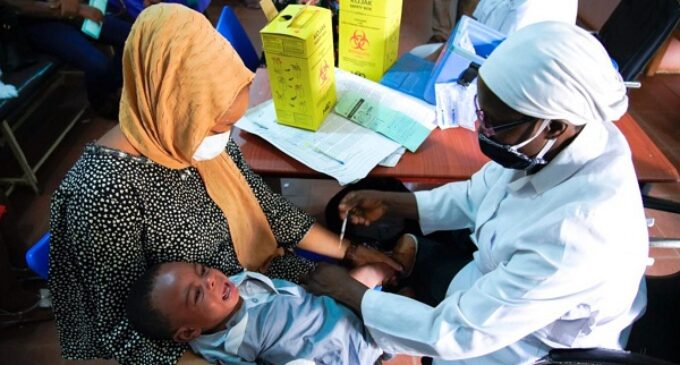Only Kaduna, Sokoto met 15% health funding target between 2020 and 2022, says ONE Campaign

A report by ONE Campaign says only Kaduna and Sokoto met the 15 per cent African Union health allocation target between 2020 and 2022.
According to the report titled Post-Pandemic Health Financing by State Governments in Nigeria 2020 to 2022, the health sector received less funding in 2022 than in 2020 when adjusted for inflation.
The report also says the proportion of total budgets allocated to health by most state governments is on a downward trend.
“In 2001, the heads of state of African Union countries met in Abuja and pledged to devote at least 15% of their annual budgets to improving the health sector,” the report reads.
“But ever since, Nigeria has failed to spend anything close to the Abuja declaration requirement, leaving the country’s healthcare system poorly funded and unable to respond to major outbreaks.
“The combined health sector allocation between 2020 and 2022 is notably short of the Abuja conference target.
“Only Kaduna and Sokoto states have consistently hit the required target between 2020 and 2022. Sub-national governments’ persistent under-allocation of resources to the health sector has led to a funding gap of N1.36 trillion between 2020 and 2022 alone. For context, Nigeria needs NGN1.89 trillion to execute its 5-year malaria plan by 2025.
“The federal government (FG) budget allocation to the sector averaged 4.7% in the last 20 years. The highest the country has ever assigned to the ministry of health was 6.1% in 2012. Even when other health-related budget lines are added to the budget mix, the average allocation to the sector increased marginally to about 5%, representing only a third of the required funding.”
The report added that between 2020 and 2022, twenty-three states have at least increased their nominal spending on health.
“However, 13 state governments, especially Ebonyi and Plateau state, have reduced fiscal allocations to the health sector despite the poor health outcomes that are documented in the country and the lessons from the pandemic on the need for a strong and resilient health system,” the report states.
“Per capita, health allocations have fallen from the 2020 level of $10.8 per person to $8.5 per person per year in 2022 – significantly lower than the World Health Organization (WHO) recommended target of $86 per capita to address health challenges.”
Commenting on the report, Stanley Achonu, Nigeria country director at ONE Campaign, said COVID-19 has exposed additional gaps in the country’s healthcare system and has shown why the sector requires ambitious strategies and adequate funding.
“As the 2023 budget season approaches, governments at all levels must prioritize health care and allocate a significant portion of their budget to improving healthcare delivery. Adequate disbursements should follow these allocations to finance health infrastructure and programs,” he said.
















There are no comments at the moment, do you want to add one?
Write a comment